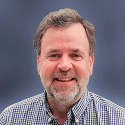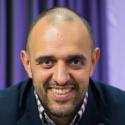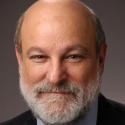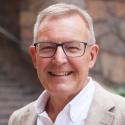2024 Apologetics (Advanced) Network
- Image
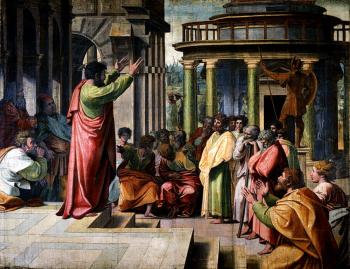
What did the Apostle Paul do when Pre-Christian Europe was pagan, relativistic, and pluralistic? He did apologetics among his contemporaries; Paul went to the Jews arguing from the Old Testament Scriptures that Jesus was the Christ and to the pagan Greeks using their literature and cultural artifacts to argue that the "unknown God" has been revealed and proclaimed in Jesus.
21st century Europe is in a state very similar to Paul's time and needs gifted apologists who can demonstrate that Christianity is true and relevant. Therefore, the vision of the European Apologetics Network is to train a new generation of apologists who can stand in today's marketplace of ideas in the way that Paul did in his generation. Our desire is to develop apologists who will testify to the truth of the Gospel with wisdom, versatility, and courage in their efforts to persuade their contemporaries.
The Advanced Apologetics Network has been formatted to function as an interactive learning experience that flows with a common theme. Based on participants’ feedback, the new format will provide three essential components to support apologetic endeavor in Europe:
- Knowledge: Network participants will learn from leading apologists, philosophers, and scientists, being equipped to engage some of the crucial issues of our time with fresh perspectives.
- Skills: Our updated format includes an emphasis on practical skills development. Participants will be challenged to put into practice what they've learned in interactive formats, including developing arguments and content ideas.
- Community: By joining the Network, participants become part of a community of apologists. The new Network design will provide opportunities to connect with like-minded Christians, exchange know-how, and work together on future collaborations. We envision that this community will continue throughout the year online.
What Network Participants Are Saying
- "Being at the European Leadership Forum is so exciting and encouraging. I had the amazing opportunity to meet experienced academics and apologists, gifted speakers, devoted Christians, and faithful brothers and sisters in Christ. The information and knowledge I received through the Apologetics Network are of great help to me, challenging me to invest in my training, abilities, and calling."
- Teodor Colda, Vice Academic Dean of Baptist Theological Institute, Romania - "The European Leadership Forum has become like an elder brother who holds the hand of a toddler and teaches them to work. I started experiencing the benefits of the Forum last year with the Year-Round Mentoring program, where I was able to share the challenges of my context with my mentor; he helped me to find tangible solutions to my problems. I have now received encouragement from leaders from all over the world in the Apologetics Network and can say that I am now encouraged to keep serving God, knowing that I am not alone."
- Danson Ottawa, National Coordinator of Africa Center for Apologetics Research, Kenya
Applicants should be those with evangelistic or apologetic gifts who have first attended the European Apologetics Network: Foundational Track and the European Evangelism Network. The purpose of the Network is to train, mentor, equip, and resource those evangelists and apologists who are seeking to communicate the Gospel in their local communities. Prior preparation will be set for all applicants.
Network Leadership
Network Speakers
Darrell L. Bock is Senior Research Professor of New Testament Studies at Dallas Theological Seminary in Dallas, Texas, as well as Executive Director of Cultural Engagement for the Hendricks Center for Christian Leadership there. An author or editor of about fifty books, his special fields of… Read more
John Dickson’s story is eclectic. Starting out as a professional singer-songwriter, he now works as an author, speaker, historian, and media presenter. He was the Founding Director of the Centre for Public Christianity (2007-17). He has published over 20 books, two of which became television… Read more
Andrew Fellows was appointed pastor of a church in Bradford, West Yorkshire in 1988 where he served for seven years. In 1995 his family moved to the English branch of L’Abri Fellowship, where they lived and worked for 21 years. From 2011 to 2016 Andrew was the chairman of L’Abri International.… Read more
Alexander Fink is Director of the Institute for Faith and Science (Institut für Glaube und Wissenschaft) in Marburg, Germany (www.iguw.de). He studied physics at Bayreuth and St. Andrews (UK) universities and received his PhD at the Institute for Biophysics at… Read more
Stefan Gustavsson is a member of the European Leadership Forum Steering Committee. He is the director for Apologia – Centre for Christian Apologetics and makes his home in Stockholm. He was the founding general secretary for 16 years of the Swedish Evangelical Alliance. Stefan travels widely… Read more
Mihail Stefanov is the assistant pastor at Crossroad’s Church Sofia (crossroadchurch.bg) and the founder of Culture and People (cultureandpeople.eu) – an international consulting firm helping global business leaders transform the culture of their organizations. He has a deep passion for… Read more
Network Programme
Sunday, 26 May
If we are genuinely engaging unbelieving sceptics many of our apologetic encounters will occur in spaces where there is hostility towards Christianity. In this talk we will explore how we can be prepared when we are under attack.
When it comes to apologetic conversation methods, most apologists today look like faithful disciples of Aristotle. They spend their days in search of the perfect argument that is both logical and persuasive. Before Aristotle, however, there was Socrates, the first of the great philosophers, who had a secret weapon - questions. In this talk we will see how questions can become the ultimate apologetic tool, which prepares the soil of the mind for the seeds of our arguments in defense of the Gospel.
Monday, 27 May
A key criticism of Christianity today concerns the problematic history of the Church, whether the “Christian jihad” of Charlemagne or the recent child sexual abuse scandals and cover-ups. Avoiding both the whitewashing of history and acquiescing to the mantra that “religion does more harm than good,” Professor Dickson will propose a threefold approach to this vital question of public Christianity today.
This session will engage common arguments sceptics use to discredit the Gospels. Why is John’s Gospel so different from Matthew, Mark, and Luke? What should we make of differences in parallel Gospel accounts that sceptics use to try and undercut the credibility of the Gospels? How does one discuss such differences? Come and join us as we explore these questions and consider how to respond well.
Tuesday, 28 May
Many people still think that you can’t believe in God and science at the same time. Has science truly disproved the existence of a personal God? Asking this question can trigger very interesting conversations about worldview presuppositions, the scientific method, and evidence. In this session, we will explore some of these arguments and their limits, ultimately showing that good reasoning points in the opposite direction: that a personal creator exists.
The intellectual critique from the Enlightenment is still around, but in recent decades it has been superseded by aggressive moral critique of the Christian faith. In a dramatic cultural reversal, the accusation against Christianity is now that it is immoral, hurtful, and dangerous. Why this shift in the secular critique? And how can we, in such a poisoned cultural environment, engage in meaningful conversations about the Gospel?
Wednesday, 29 May
Welcome to the Relentless Podcast! The final day is entirely allocated to practice and method, focusing on an interactive role-play activity.
In this first session, participants take on the role of Christian apologists, invited as guests to the Relentless Podcast live show. There they are grilled by the two hosts on a variety of difficult topics.
Welcome to the Relentless Podcast! The final day is entirely allocated to practice and method, focusing on an interactive role-play activity.
In this second session, participants engage in feedback and brainstorming on improving their communication strategies, arguments, and overall defence of the Christian position.

